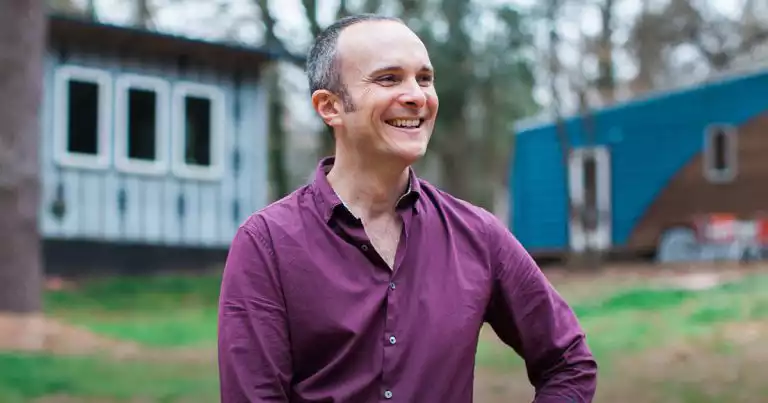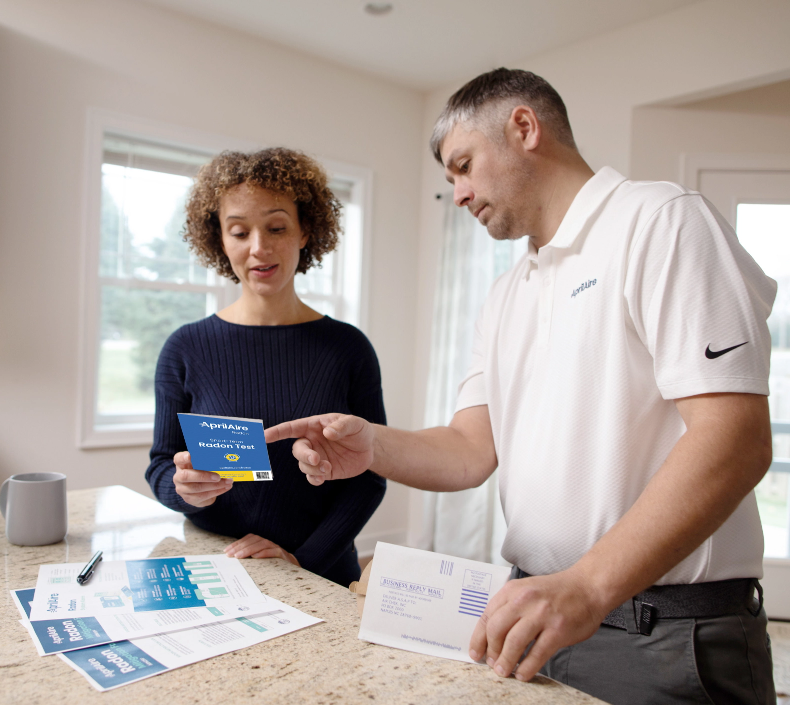Q&A With Corbett Lunsford, Co-host of ‘Home Diagnosis’
3 minute read
Building a new home is an exciting time for you and your family. From picking the right neighborhood to finalizing the blueprints, the process is full of hope and potential. We talked about that topic and much more with Corbett Lunsford, co-host of the public television series ‘Home Diagnosis,’ which focuses on the science of homes.
At AprilAire, we want that excitement to keep going well after you’ve moved in. We believe that starts with making sure the air in your new home is safe for you and your family from the beginning.
While buying an older, existing home presents its own air quality challenges, building a new home gives you the chance to create a healthy indoor environment from the foundation up.
Modern building techniques and materials make construction more efficient and less expensive, but some of them can emit pollutants into the air and introduce other potential air quality issues.
“Every home is a chemical experiment at work,” said Corbett Lunsford. “Think of the home as a planet, with millions of microorganisms, an ecosystem that evolves as more things are added to it.”
He added, “There’s no one prescription for all households. Lots of factors determine the health of a space.”
While there is no “one-size-fits-all” home advice, we know you still want to do all you can to make sure your home ecosystem is healthy. For that, Corbett Lunsford shared some expert tips on building a home that you and your family will grow and thrive in.
Corbett Lunsford’s Expert Advice On Home Air Quality
Excerpts are taken from a conversation with Corbett Lunsford on building a healthy home. All emphases added by AprilAire.
3 Areas Of Focus When Homebuilding
- “Don’t bring bad things in.”
“Try to avoid bringing reactive things into the house and things that will “off-gas” over the long-term, like insulation or materials with flame retardants.”
“For example, don’t keep paints and solvents in the house. Keep them in an air-sealed garage.” - “Keep it dry to prevent mold.”
“You should have a dehumidifier, even if you have a humidifier for the winter. What you want to do is control the humidity so you don’t grow mold.” - “Outdoor air ventilation is crucial.”
“If you have an outdoor air system that works, then things like chemicals and humidity won’t be as big of an issue.”
On Volatile Organic Compounds (VOCs)
At AprilAire, we give you ways to remove VOCs from your home. While it’s important to remove harmful VOCs, Corbett says that making a “zero-VOC” home is impossible.
“We’re always bringing chemicals and VOCs into the house with everyday activities like cooking and cleaning and breathing.”
“Ventilation is crucial for reducing the concentration of VOCs in your home. You definitely want to ventilate anywhere there is moisture introduced to the home, like the bathrooms and kitchen.”
On Kids’ Health
“Their lungs are developing right now, and it’s just not good for them to breathe certain chemicals or any particles. The more chemical combinations you add to your home, the more risk you’re creating for your kids.”
“Carpets hold onto a lot of particles. Children spend the most time next to that flooring that may have harmful chemicals in it.”
“I recommend against using foam insulation on houses. It’s a great insulator, but it contains toxic flame retardants that can travel through things like drywall and even sheet metal. This will likely impact lung development for kids.”
On Air Purifiers
Once you decide what air filters are needed in your home, check out AprilAire’s filter options.“Air filtration is the only air purification tactic that will not have side effects that are going to endanger your family.”
“This is a really important concept. I recommend air purifiers that are just a fan and a filter. Anything else is unnecessary and potentially harmful.”
“Never buy an air purifier that creates ozone. It’s very reactive and hard to measure, because it disappears when it reacts with other chemicals.”
“If you’re seeking healthier indoor air, especially for developing kids, you need a MERV 13 filter.”
“If you’re really serious about indoor air, use a HEPA filter system. That’s what is used in hospitals.”
The Importance Of Testing
“All of this advice is predicated on testing and knowledge. You have to prove that air systems are doing what they say they do.”
“Cheap indoor air quality monitors that you buy online aren’t very good. To make sure your systems are working, you should ask for testing and diagnostics from the company that did installation, or an independent professional.”
“If you’re going to test your indoor air quality, the level of VOCs is not necessarily an indication of an unhealthy environment. Your nose is actually a much better VOC detector than most tests.”
Corbett Lunsford’s Recommended Resources
A deep exploration into how indoor air chemical compounds interact and transform throughout a normal day of activities.
Information on household chemicals.
Toxic Chemicals and Home Performance
Biophysical chemist Arlene Blum talks with Corbett Lunsford and Grace (hosts of Home Diagnosis) to talk about the “Six Classes” of harmful chemicals.
Home Performance YouTube Channel
Over 500 educational videos on the science of homes.
